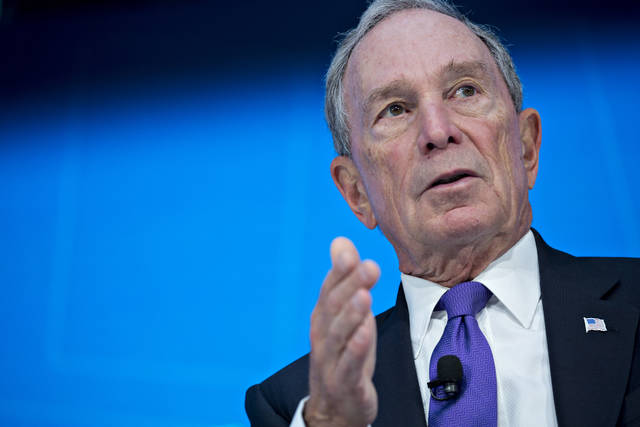Tell me if this sounds like someone you know:
Brash New York businessman with a history of scattered political affiliations and controversial ideas jumps into crowded primary, spending his own money on long-shot presidential bid.
Of course, that accurately described Donald Trump in 2015. But in 2019, it also fits Michael Bloomberg.
The former real estate mogul and television personality, against all odds, actually became president. The current media mogul and former New York City mayor is betting he can do the same, but in a very different way.
Fans of Bloomberg may wince at the comparison with the lying, cheating, race-baiting, ill-tempered and foul-mouthed Trump. After all, Bloomberg is what many non-Republicans think good one-time Republicans should be: Democrats. Aside from his well-documented history of derogatory comments about women, Bloomberg is usually well-spoken, he’s perceived as thoughtful, smart and practical. His enormous philanthropic efforts are also well-established.
But like Trump, he is in one of the most loathsome and dangerous categories of would-be presidents: He is a solutionist.
Solutionists are highly successful in one area — say, real estate or business — and believe their natural next step is running the whole damn country.
While anyone who believes they should be president of the United States must have an outsized sense of self, the solutionist’s arrogance is boundless. Not only do they seem to think they can solve all the complex socioeconomic, structural and cultural problems that have stymied brilliant scholars and political leaders for generations, they think it won’t take them all that long either.
Trump was bluntly, almost cartoonishly solutionistic, promising to take on big, often-intractable issues like immigration, health care and trade early in his first term and with relative ease. He’s not been able to solve any of those, as of yet.
Bloomberg’s solutionism is decidedly more elegant and nuanced. Before running for leader of the free world, he decided he’d lead its biggest city first, which he did for 12 years, even insisting he deserved an extra term — as any good solutionist would. In that time, he promised to fix major systemic issues like obesity, drugs and crime, yielding very mixed results.
His solutionism mostly involved taking away free will. His list of banned or attempted bans includes but is far from limited to trans fats, salt, smoking, Big Gulps, loud headphones, cars, grass clippings and Styrofoam. He even told hospitals to stop giving new mothers baby formula to encourage breastfeeding.
Bloomberg’s solutionism is certainly better dressed than Trump’s. But any solutionism is dangerous in that it tends to ignore or reject the necessary limitations of important systems and institutions — things like basic economics, the Constitution, the law and human nature. To the solutionist, these are just nuisances a clever workaround can easily abate.
No matter the party, good governance should recognize that the best solutions often come from individual citizens, local municipal governments and the private sector, and not the magical imagination of a single powerful man who says he has all the answers. Trump and Bloomberg may be very different, but solutionism is bad whatever form it takes.








